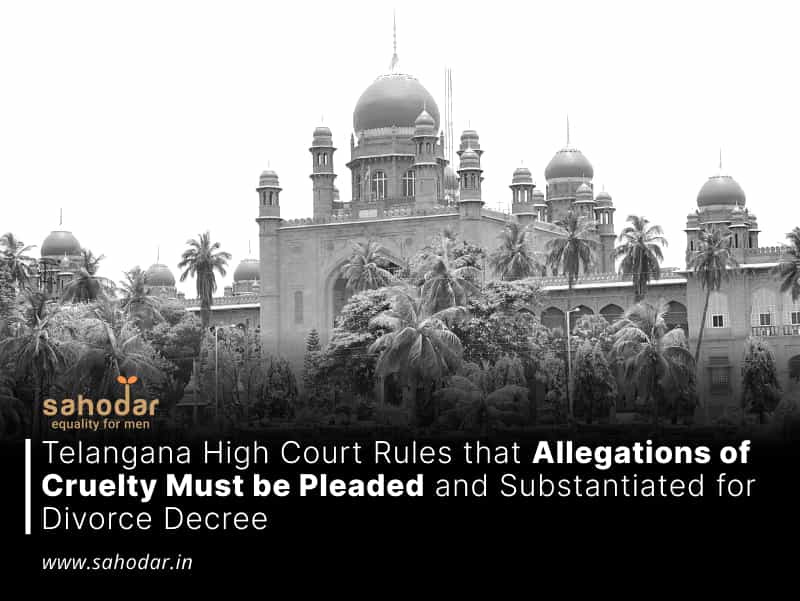The Telangana High Court ruled that a Divorce decree based on cruelty cannot be granted by the Family Court unless there is a proper pleading and substantial evidence. This decision was made in response to an appeal filed by a wife challenging the divorce decree issued by the Family Court in Hyderabad.
A Division Bench comprising Justice K. Lakshman and Justice P.K. Sujana observed, “… the Court below erred in granting divorce to the respondent/husband by dissolving the marriage of the appellant/wife with him solemnized on 17.02.2005 on the ground of cruelty. As discussed supra, the Family Court cannot grant decree of divorce without there being a pleading and cogent evidence. The Court cannot grant divorce on the ground of cruelty without pleading and proving the same.”
Senior Advocate G. Pedda Babu acted as legal counsel for the appellant (wife), whereas Advocate Vishnu Prasad Reddy represented the respondent (husband).
Case Synopsis:
The respondent, as the petitioner, initiated proceedings under Section 13 (1) (ib) of the Hindu Marriage Act, seeking a decree of divorce on grounds of desertion against the appellant before the Family Court. The marital union, solemnized in 2005 through Hindu rites and customs, was officially registered. Following an initial cohabitation period of approximately one month, the couple temporarily resided in the USA. During this period, they were blessed with a child. However, subsequent disputes led the husband to assert that the wife had deserted him, prompting the filing of a petition before the Senior Civil Judge’s Court in Medak, invoking desertion as the grounds for divorce.
Pursuant to the legal requirement for seeking dissolution based on desertion, a prerequisite is the continuous abandonment for a minimum of two years preceding the petition’s filing. In this instance, the period of desertion fell short of the stipulated two years. Consequently, the husband withdrew the desertion plea and, through an application under Order VI Rule 17 of the CPC, sought leave to amend the Original Petition. The amendment proposed the inclusion of Section 13(1) (ia) of the Hindu Marriage Act, introducing cruelty as an alternative ground for divorce. The Family Court granted permission for this amendment, prompting the wife to appeal the decision before the High Court.
The High Court in view of the above facts of the case noted, “It is relevant to note that the Family Court in the impugned order gave a specific finding that the respondent/husband failed to prove the said illegal intimacy developed by the appellant/wife with her brother-in-law Mr. Srinivasa Rao.”
The main issue that was to be decided by the Court was whether the Family Court is justified in granting divorce to the respondent/husband on the ground of cruelty which was not pleaded and proved.
“… the respondent/husband had filed the aforesaid O.P. initially on the ground of desertion. However, he has withdrawn the said ground. There is no pleading with regard to cruelty. As rightly held by this Court in the order dated 22.09.2014 in CRP No.1249 of 2014 that not a word was said about the cruelty in the pleadings, either in the original form or through the said amendment, thus, trial Court committed error in observing that no prejudice will be caused if the amendment is to be permitted. Thus, the application filed by the respondent/husband vide I.A.No.619 of 2013 seeking to amend the prayer to include ground of cruelty under Section 13(1)(ia) of the Hindu Marriage Act was dismissed”, said the Court.
The Court reiterated that the respondent, acting as the husband, did not possess the right to amend the prayer during the appeal phase. As a result, the Family Court’s grant of a divorce based on cruelty was deemed an error by the High Court.
In accordance with these findings, the High Court accepted the appeal, thereby revoking and annulling the Family Court’s order.

